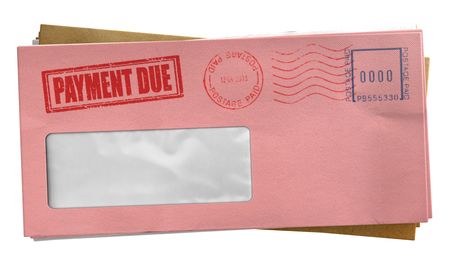Top Class Actions’s website and social media posts use affiliate links. If you make a purchase using such links, we may receive a commission, but it will not result in any additional charges to you. Please review our Affiliate Link Disclosure for more information.

The FDCPA violations lawsuit alleges that the debt collection agency participated in unfair debt collection practices by using false and misleading practices in its attempt to collect a debt.
Plaintiff Menachem L. alleges in the debt collection abuse lawsuit that Professional Recovery Services used illegal tactics to collect on an alleged debt and sent collection letters to consumers which revealed personal information including account numbers, names, and address that were visible through a glassine window, thus an invasion of privacy since any person handling the mail can see a core piece of information pertaining to an alleged debtor.
According to the FDCPA violations lawsuit, Menachem received a debt collection letter on Feb. 19, 2014 seeking to collect a balance allegedly incurred for personal purposes. Through the window of the envelope, Menachem’s consumer account number was visible by any third party above his name and address, which is a violation of the FDCPA.
The plaintiff is bringing this action forth on behalf of all consumers who received a debt collection letter by Professional Recovery Services that revealed personal information other than Professional Recovery Services’ name and address.
What is the Fair Debt Collection Practices Act (FDCPA)?
In 1977, in response to a growing problem with abusive debt collection practices, the federal government enacted the Fair Debt Collection Practices Act (FDCPA). The objective of the FDCPA was to eliminate abusive debt collection practices by penalizing businesses that violated the regulations.
In addition to imposing requirements on debt collectors, the FDCPA prohibited a variety of abusive collection practices, including using any language or symbol other than the debt collector’s address on any envelope when communicating with a consumer by use of the mail.
More importantly, the FDCPA laws gave aggrieved consumers a legal cause-of-action to seek damages in court. Under the FDCPA, if a collector is proven to have used illegal debt collection practices, a consumer need not prove actual damages in order to recover up to $1,000 in damages plus reasonable attorney fees.
Menachem L. is seeking all actual and statutory damages for Professional Recovery Services alleged violation of the FDPCA as well as all reasonable court costs. He has demanded a jury trial for this case.
The Professional Recovery Services FDCPA Lawsuit, filed on Feb. 16, 2015, is Case No. 1:15-cv-00795-ARR-SMG, U.S. District Court for the Eastern District of New York.
Join a Free Unfair Debt Collection Class Action Lawsuit Investigation
If a lender or debt collector engaged in unfair debt collection practices, you may have a legal claim and could be owed compensation for violations of the Fair Debt Collection Practices Act (FDCPA).
DISCLAIMER: Debt collection itself is not illegal. However, debt collection firms collecting on consumer debts must adhere to the FDCPA. Even though debt attorneys are investigating these companies, their debt collection practices may be legal.
ATTORNEY ADVERTISING
Top Class Actions is a Proud Member of the American Bar Association
LEGAL INFORMATION IS NOT LEGAL ADVICE
Top Class Actions Legal Statement
©2008 – 2024 Top Class Actions® LLC
Various Trademarks held by their respective owners
This website is not intended for viewing or usage by European Union citizens.














